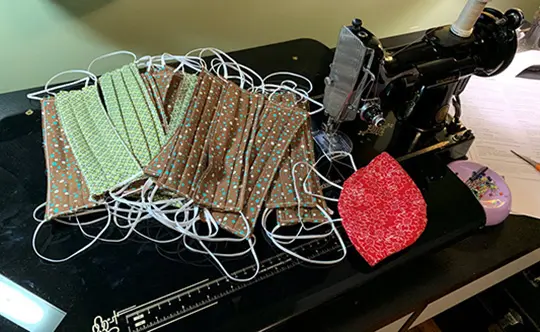LANSING — The Michigan History Center announced over the weekend a new collecting initiative that gives residents the opportunity to share stories that reflect their experiences during the COVID-19 pandemic, for the benefit of future generations.
The Michigan History Center has said the COVID-19 pandemic is a critical moment in history, and the center is committed to documenting – through objects, archival materials, stories and experiences from diverse Michiganders – how the coronavirus is affecting Michigan residents in the workplace, at home, in communities and in many other settings.
The first phase of the three-phase collecting initiative is active right now. It offers a web-based platform for people to share and donate photos, videos and audio files that document their daily lives during this emergency – all of which will be considered for preservation in the archives of Michigan’s collections. The following questions can provide a starting point in choosing what to share:
- How are you communicating with family, friends and colleagues?
- Have certain places become more important to you?
- What is something that has brought you unexpected joy?
- What steps have you taken to protect your health and the health of others?
“Archives and museums preserve and share the real stuff of the past, but we also have an obligation to collect and preserve the documents, images and objects that will help future residents understand our present,” said Sandra Clark, Michigan History Center director.
“There is no question that the coronavirus emergency that is so deeply affecting all our lives is a significant history-making time. That’s why the Michigan History Center is launching this collecting project now. We hope, too, that the shared experiences will strengthen our state’s sense of community and reduce feelings of isolation.”
Phase 2: 3D objects
The second phase is collecting three-dimensional objects and documents related to the coronavirus emergency for the Michigan History Museum system’s collections. In keeping with the “Stay Home, Stay Safe” executive order, this phase will begin with a call to the public to help identify items and move to physically gathering them once it is safe to do so.
Phase 3: Interviews and stories
The third phase involves long-term collecting of stories, through oral history and StoryCorps interviews, memoirs and other materials that are created during the reflection period after an immediate crisis. These materials will be preserved in both the museum and archival collections.
Michigan residents can learn more about the initiative at Michigan.gov/MHCStories.






Leave a Reply